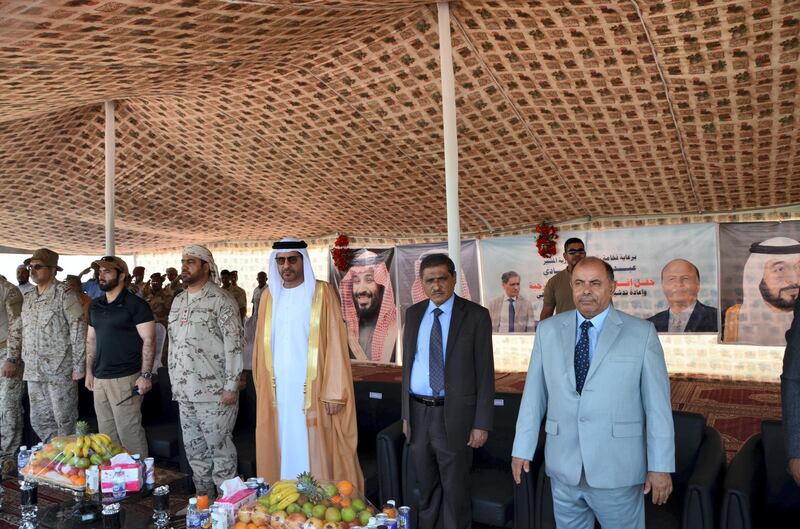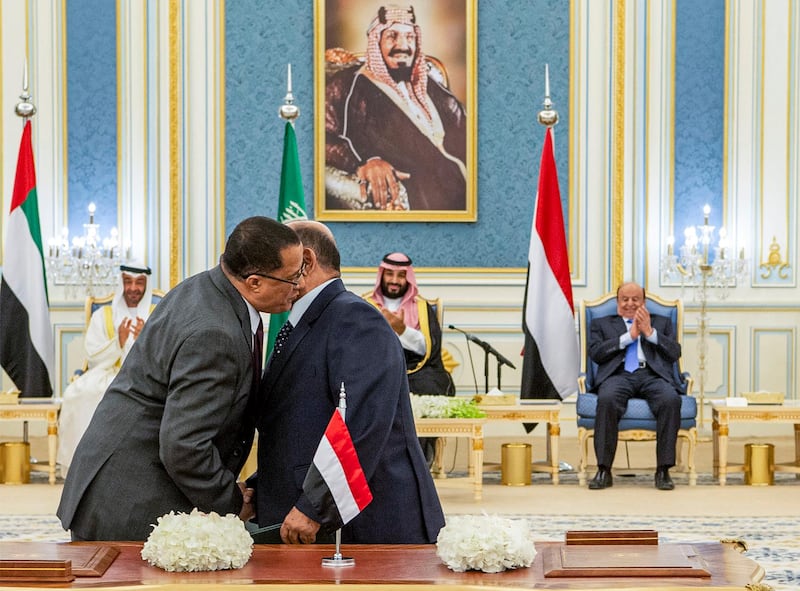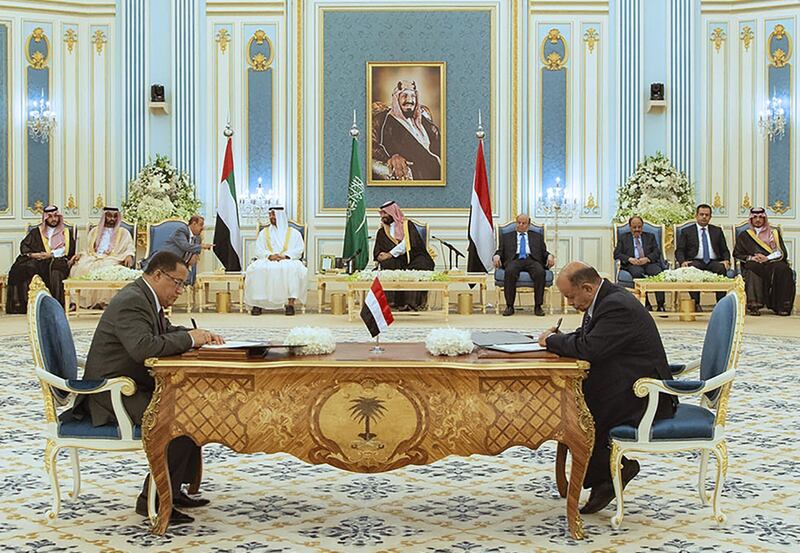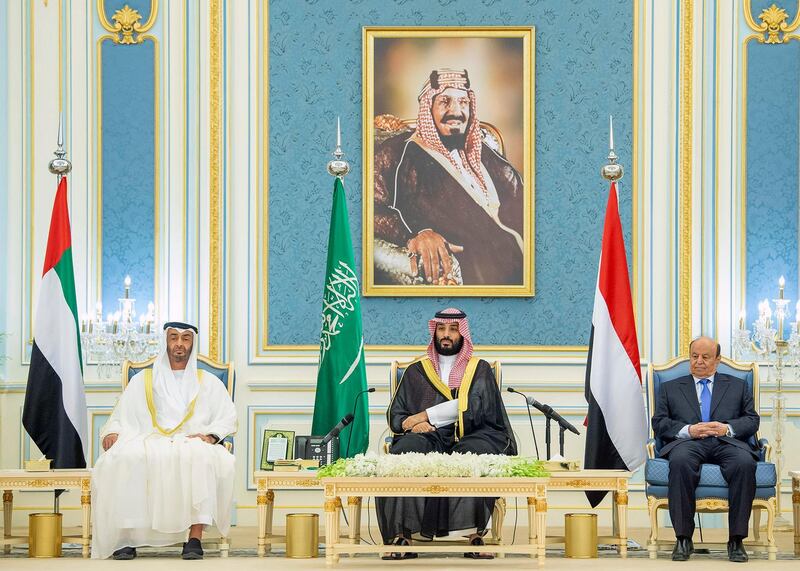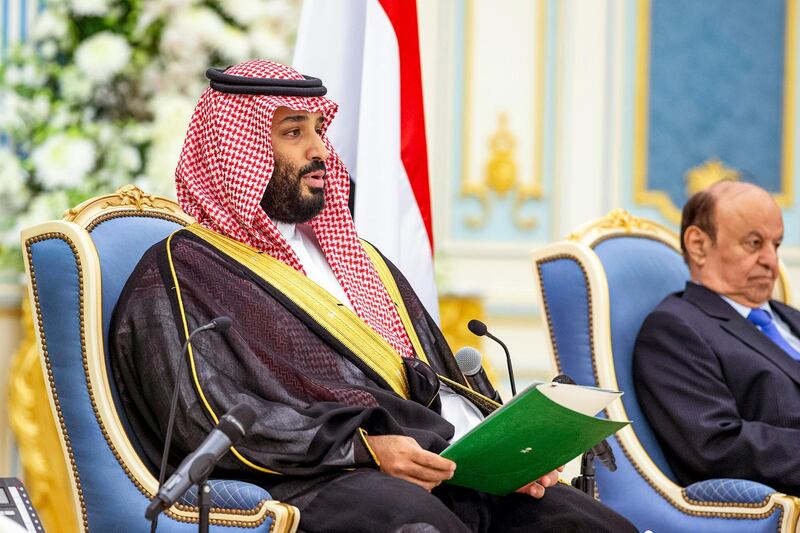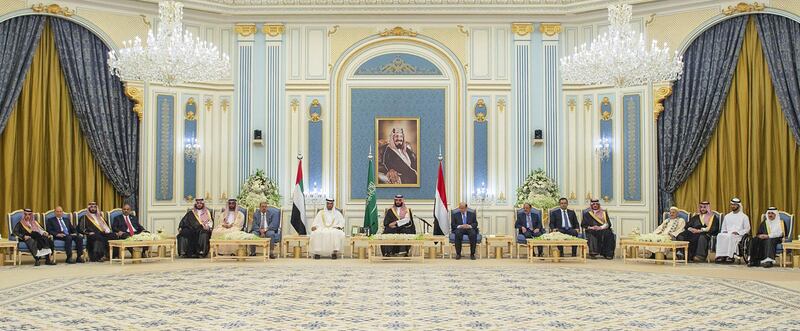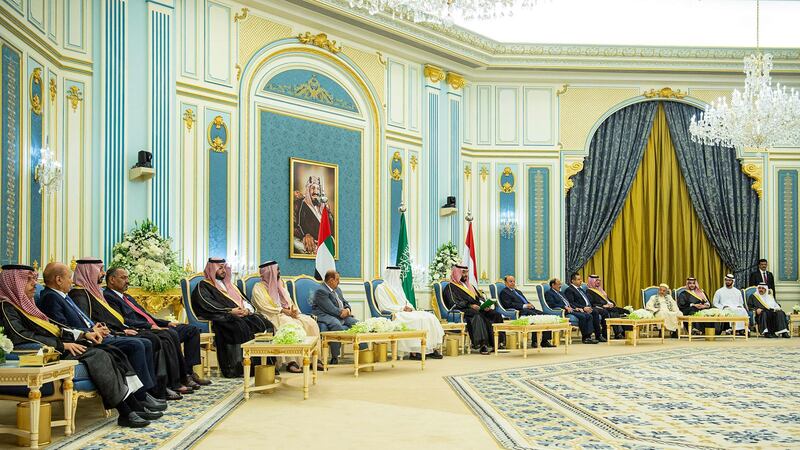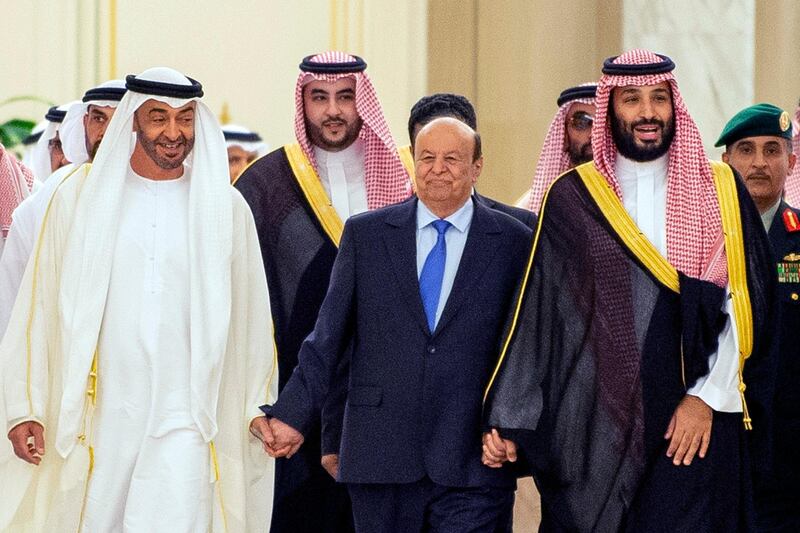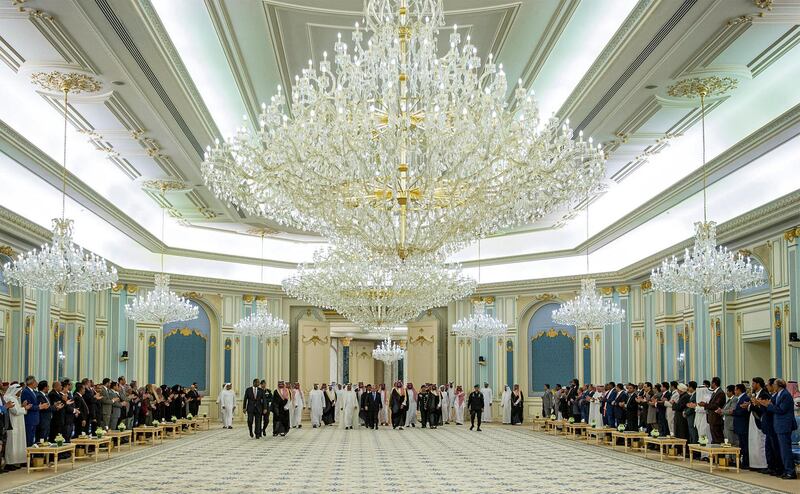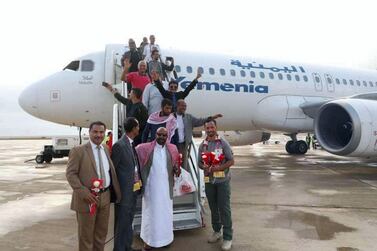The Saudi-brokered peace agreement between the Yemeni government and the secessionist Southern Transitional Council will hold and lead to institutional reforms in the government, said Yemen’s Deputy Prime Minister, Salem Al Khanbashi.
In an interview with The National at his home in Mukalla, capital of the south-eastern province of Hadramawt, Mr Al Khanbashi said delays in applying some terms of the agreement and recent brief skirmishes in the south would not harm the pact.
“The Riyadh Agreement is a historical document that addresses major problems that have accumulated over the past 30 years," he said.
“The agreement is a road map for structural reforms in the state’s system. It will also bring together the southerners ahead of a comprehensive settlement in the country and against our common enemy, the Houthis.”
Mr Al Khanbashi signed the agreement on behalf of the government.
A senior member of the General People’s Congress, the party that has ruled Yemen for decades, he was appointed deputy prime minister by President Abdrabu Mansur Hadi in October last year.
Born in Hadramawt in 1952, Mr Al Khanbashi is an associate professor of philosophy at Hadramawt University and served as governor of the province.
The November 5 agreement restored the southern city of Aden to government control after it was seized by STC-allied forces in August and provided for the formation of a new government with equal representation for the council within 30 days.
Although Prime Minister Maeen Abdul Malik returned to Aden two weeks later with members of his Cabinet, formation of a new 24-member government and replacement of governors and security chiefs in southern provinces has not yet taken place.
Mr Al Khanbashi said that the deadlines set were ambitious.
“Let me admit that we pressured ourselves in terms of deadlines," he said. "I think deep-rooted social problems cannot be solved in one or two weeks.
"There will be objections here and there. But by the end of the day, the deal will be implemented. It is alive and renewable.”
Mr Al Khanbashi said Saudi-led negotiations were long and tough because the government and the STC at first refused to engage in direct talks.
“A Saudi committee made up of the Saudi ambassador to Yemen and other figures held almost 15 meetings with the government," he said.
"They listened to our ideas and suggestions and put them in three drafts. The final draft was approved by us and members of the Transitional Council."
Mr Al Khanbashi was full of praise for the STC’s role in battling the Houthi rebels.
“Some military formations loyal to the council are battling Houthis in Karesh, Dhalea and the western coast,” he said.
After more than four years of war, the Iran-backed rebels continue to hold Yemen's capital, Sanaa, and much of the north.
Supported by a Saudi-led military coalition, in which the UAE has played a leading role, the government has regained control of south.
Mr Al Khanbashi said Yemenis appreciated the UAE's quick response to the Mr Hadi's appeal for help when the Houthis forced his government to leave Sanaa for Aden in early 2015.
“In Aden, the first to provide military assistance to the popular resistance was the UAE," he said. "The UAE also militarily supported the west coast battlefield and Marib.
“The UAE Red Crescent has given out food baskets, treated injured people, renovated schools, police stations and Riyan airport and is offering assistance still now.”
Mr Al Khanbashi said the government efforts to defeat the Houthis were made more difficult by Iran supporting the rebels with arms and finances.
“The Iranians might not be in the picture but they are exploiting any loophole to smuggle arms into the country,” he said.
He said one of the government's priorities in the coming year will be depriving the Houthis of revenues from local telecoms companies.
“The Houthis collect billions of riyals from mobile companies annually," Mr Al Khanbashi said. "The government will be asking mobile companies to relocate offices to Aden."
It will also work to improve its finances by fighting corruption, increasing oil production, tightening control over border crossings and efficiently collecting taxes and customs.
“When we prepared the 2019 budget, we found out that contribution of taxes and customs in the budget was very modest," Mr Al Khanbashi said.
"There is huge corruption in this sector. The government will make sure all revenues from border crossings are deposited in the Central Bank."
The Central Organisation for Control and Auditing will be asked to monitor the performance of government agencies and report corruption.
"The Saudis also agreed to send a committee of financial experts to help us oversee implementation of the plans and collection of revenues,” Mr Al Khanbashi said.
He said that the rebels had stolen more than 750 billion riyals (Dh11bn) from the government’s account for pension payments at the central bank in Sanaa, and earned billions more by taxing businesses and merchants.
But they still refused to pay government employees in areas under their control.
“We pay all pensioners from Mahra to Saada," Mr Al Khanbashi said.
"We are committed to paying salaries of government bodies in Houthi-controlled areas, such as health, education, higher education and judiciary."
